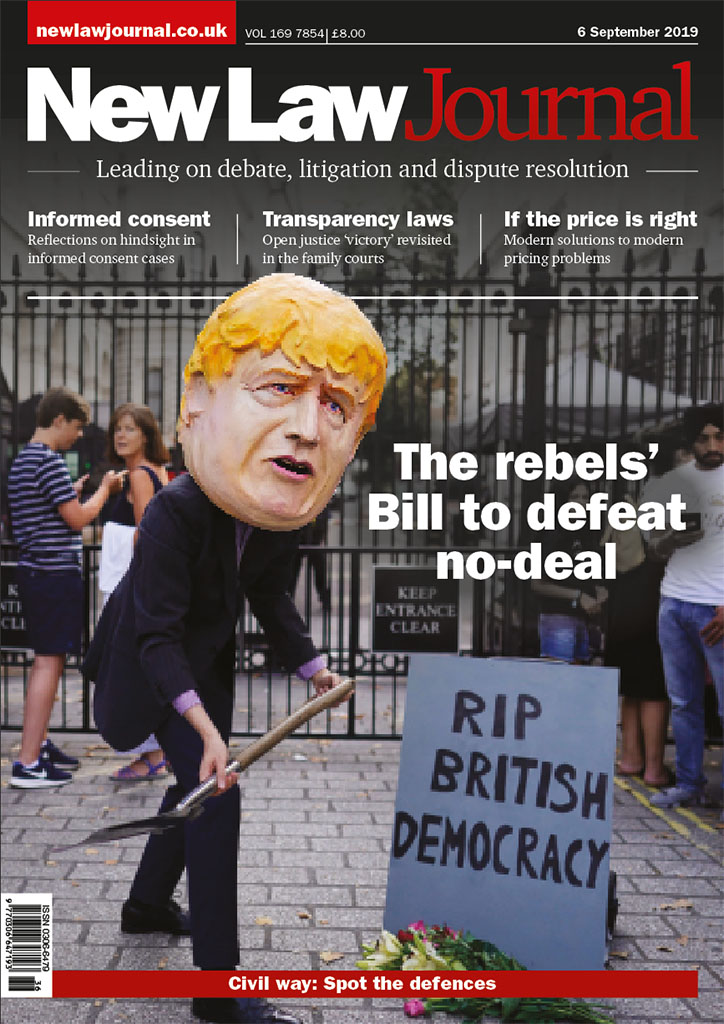
Laws governing the release of court material to non-parties in civil cases post Cape Intermediate are clear, but has the decision moved transparency laws forward for family proceedings? David Burrows reports
Claire Christopholus & David Locke provide an update on the assessment of hindsight in informed consent cases
Revisiting no order as to costs; summary assessment forms change; new appeal points; housing provider slips up; ECJ on flight compensation; bundle inheritance
Jill Nelson explains why modern pricing problems require a modern pricing solution
Geoffrey Bindman believes the Treason Act is an anomaly & of little relevance to life today
The court’s unpredictable approach means alternative resolution could be the logical choice, argue Kim Beatson & Victoria Brown
MOVERS & SHAKERS

NLJ Career Profile: Ken Fowlie, Stowe Family Law
Ken Fowlie, chairman of Stowe Family Law, reflects on more than 30 years in legal services after ‘falling into law’

Jackson Lees Group—Jannina Barker, Laura Beattie & Catherine McCrindle
Firm promotes senior associate and team leader as wills, trusts and probate team expands

Asserson—Michael Francos-Downs
Manchester real estate finance practice welcomes legal director







